
Soil Research
Scope & Guideline
Advancing soil science for a sustainable future.
Introduction
Aims and Scopes
- Soil Physicochemical Properties:
Research on the physical and chemical characteristics of soils, including studies on soil structure, composition, nutrient availability, and how these properties affect agricultural productivity and ecosystem health. - Soil Management Practices:
Investigations into various soil management strategies, such as conservation tillage, cover cropping, and organic amendments, aimed at improving soil health and productivity while minimizing environmental impacts. - Soil Microbiology and Ecology:
Studies that explore the diversity and function of soil microorganisms, their interactions with plants, and their roles in nutrient cycling, organic matter decomposition, and soil health. - Soil Erosion and Conservation:
Research examining the causes and effects of soil erosion, as well as strategies for soil conservation and restoration in agricultural and natural landscapes. - Climate Change Impacts on Soil:
Explorations of how climate change affects soil properties, processes, and functions, including studies on carbon sequestration and greenhouse gas emissions. - Soil Fertility and Nutrient Management:
Research focused on understanding nutrient dynamics in soils, including the effects of different fertilization regimes on soil fertility and crop yields.
Trending and Emerging
- Sustainable Agriculture Practices:
There is a strong emphasis on research related to sustainable agricultural practices, such as no-till farming, cover cropping, and the use of organic amendments, reflecting a broader interest in enhancing soil health while maintaining crop productivity. - Impact of Climate Change on Soil Dynamics:
Emerging studies are increasingly addressing the impacts of climate change on soil properties and processes, including soil carbon dynamics and greenhouse gas emissions, indicating a growing recognition of the need to understand these interactions. - Soil Health and Microbial Interactions:
Research on the relationships between soil health, microbial diversity, and ecosystem functions is gaining traction, highlighting the importance of soil biology in maintaining soil fertility and resilience. - Precision Agriculture and Soil Monitoring Technologies:
There is a notable increase in studies utilizing precision agriculture technologies, including digital soil mapping and sensor-based monitoring systems, to optimize soil management practices and improve agricultural outcomes. - Ecological Restoration and Soil Rehabilitation:
An emerging focus on soil rehabilitation and restoration practices, particularly in degraded and impacted landscapes, showcases the journal's commitment to addressing environmental sustainability and resilience.
Declining or Waning
- Traditional Soil Mapping Techniques:
There has been a noticeable decrease in studies focused on conventional soil mapping methodologies, likely due to the rise of advanced digital mapping technologies and remote sensing techniques that provide more efficient and accurate soil assessments. - Soil Contamination Studies:
Research addressing soil contamination from industrial and agricultural pollutants appears to be less frequent. This may indicate a shift towards more sustainable practices or a focus on remediation techniques rather than contamination assessment. - Historical Soil Studies:
Papers discussing historical soil profiles and long-term soil changes are less common, possibly as the field moves towards more contemporary and immediate applications of soil science in response to current environmental issues.
Similar Journals
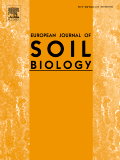
EUROPEAN JOURNAL OF SOIL BIOLOGY
Uncovering the Secrets of Soil MicrobiologyThe EUROPEAN JOURNAL OF SOIL BIOLOGY is a leading publication through ELSEVIER FRANCE-EDITIONS SCIENTIFIQUES MEDICALES ELSEVIER, renowned for its rigorous contribution to the fields of soil science, microbiology, and insect science. Established in 1993 and continuing to thrive until 2024, this journal is recognized for its high academic standards, achieving a prestigious Q1 ranking across multiple disciplines including Insect Science, Microbiology, and Soil Science in 2023. With a Scopus rank placing it in the top tiers of relevant categories, the journal serves as a vital platform for disseminating groundbreaking research and advancements in soil biology. Although currently not an open access journal, it offers valuable insights to researchers, professionals, and students, enhancing understanding and fostering innovative solutions for global soil health challenges. The journal's ISSN is 1164-5563 and its E-ISSN is 1778-3615, offering a wealth of knowledge from an esteemed publisher situated in France.
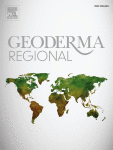
Geoderma Regional
Advancing soil science for a sustainable future.Geoderma Regional is a premier scholarly journal dedicated to advancing the field of Soil Science. Published by Elsevier in the Netherlands, this journal serves as a vital platform for disseminating high-quality, peer-reviewed research that spans the complexities of soil management, behavior, and the implications of soil processes on environmental sustainability. Since its inception in 2014, Geoderma Regional has achieved an impressive position within the academic community, holding a Q1 ranking in the field of Soil Science, placing it among the top 20% of journals in its category according to SCOPUS rankings. This journal is particularly distinguished for its significant contributions to the nexus between agriculture and biological sciences, reflected in its rank of #33 out of 159 in this field with a commendable 79th percentile. Researchers, professionals, and students alike will appreciate the journal's commitment to open discourse and innovative research agendas as it aspires to enhance our understanding of soil dynamics, addressing critical issues facing our planet.
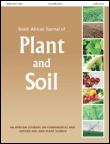
South African Journal of Plant and Soil
Advancing sustainable practices in plant and soil science.South African Journal of Plant and Soil is an esteemed academic publication dedicated to advancing the fields of Ecology, Plant Science, and Soil Science. Published by TAYLOR & FRANCIS LTD in the United Kingdom, this journal has been a vital resource since its inception in 1984, providing a platform for innovative research and scholarly articles that address critical issues in plant and soil management. With a current impact factor placing it in the Q3 category according to the 2023 rankings, it occupies an influential position within the academic community, especially amongst researchers focused on agricultural and environmental sciences. Although not an open-access journal, it remains accessible to a broad audience through libraries and institutions that recognize its value in facilitating ecologically and environmentally focused discussions. The journal's ongoing commitment to publishing high-quality research ensures that it plays a pivotal role in nurturing knowledge and fostering advancements in sustainable practices across southern Africa and beyond.
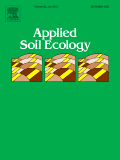
APPLIED SOIL ECOLOGY
Empowering Ecological Insights from the Ground UpApplied Soil Ecology, published by Elsevier, is a premier journal dedicated to advancing the field of soil ecology through rigorous research and innovative methodologies. With an impressive impact factor and a consistent placement in the Q1 quartile across various categories including Agricultural and Biological Sciences, Ecology, and Soil Science, this journal underscores its significance in the scientific community. The journal's scope encompasses critical areas such as soil biology, microbial ecology, and the role of soils in ecosystem services, aiming to foster collaboration and knowledge exchange among researchers, professionals, and students. The convergence of research efforts from 1994 to 2024 highlights its commitment to maintaining current and relevant discourse within the field. While open access options are not available, the quality and depth of the articles published ensure that the latest findings and discussions are accessible through institutional subscriptions. With a strong focus on empirical studies and applied research, Applied Soil Ecology is an essential resource for anyone interested in the complexities of soil ecosystems and their impact on the environment.
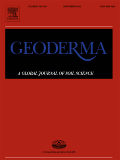
Geoderma
Innovating Soil Research for a Sustainable FutureGeoderma is a leading academic journal published by ELSEVIER, focused on the vital field of Soil Science. With an impressive impact factor and ranking as Q1 in its category for 2023, this journal stands as a prominent platform for researchers and professionals seeking to explore advanced scientific studies related to soil and its relationships with the ecosystem. Covering a wide range of topics from soil formation and characterization to land use and management practices, Geoderma is recognized for its rigorous peer-review process and is highly regarded within the global scientific community, as evidenced by its ranking of #12 out of 159 in the Scopus categories of Agricultural and Biological Sciences and Soil Science, placing it in the top 92nd percentile. With its inception dating back to 1967, the journal continually adapts and converges its content to meet the evolving demands of soil research until 2024 and beyond, providing invaluable insights for students, professionals, and researchers alike.
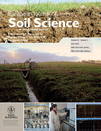
EUROPEAN JOURNAL OF SOIL SCIENCE
Advancing Soil Knowledge for a Sustainable FutureEUROPEAN JOURNAL OF SOIL SCIENCE, published by Wiley, stands as a leading platform in the field of soil science, recognized for its contributions to the understanding of soil ecology, management, and sustainability. With an impressive impact factor and a distinguished Q1 ranking in Soil Science, this journal has recently ranked 23rd out of 159 in its category on Scopus, placing it in the 85th percentile among its peers. Covering a wide array of topics as it converges into the future, from 1994 to 2024, the journal aims to disseminate groundbreaking research and innovative methodologies that address the pressing challenges of soil degradation and environmental sustainability in Europe and beyond. Although it is not an open access journal, the EUROPEAN JOURNAL OF SOIL SCIENCE remains a vital resource for researchers, professionals, and students seeking to deepen their understanding and explore the latest advancements in soil science.
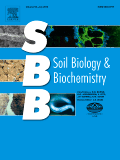
SOIL BIOLOGY & BIOCHEMISTRY
Innovating Insights into Soil BiochemistrySOIL BIOLOGY & BIOCHEMISTRY, published by Pergamon-Elsevier Science Ltd, is a premier academic journal that plays a pivotal role in advancing the fields of microbiology and soil science. Established in 1969, this esteemed journal has gained recognition for its rigorous publication standards and impactful research contributions, evidenced by its prestigious Q1 rankings in both Microbiology and Soil Science categories for 2023. With an impressive Scopus rank of #3 among 159 in Agricultural and Biological Sciences and #14 among 182 in Immunology and Microbiology, it boasts a notable 98th percentile in its field. The journal offers researchers, professionals, and students a vital platform for sharing innovative studies and insights about soil ecosystems and their biochemical processes, fostering greater understanding and collaboration within the scientific community. While Open Access options are currently not available, the journal remains a cornerstone for those seeking to deepen their knowledge and contribute significantly to soil biology and biochemistry.
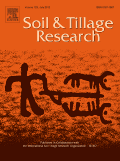
SOIL & TILLAGE RESEARCH
Unveiling the Secrets Beneath Our FeetSOIL & TILLAGE RESEARCH is a premier international journal dedicated to advancing the understanding of soil science and tillage practices through high-quality research and insightful reviews. Published by Elsevier and based in the Netherlands, this esteemed journal boasts impressive impact metrics, being ranked in the Q1 category across multiple domains including Agronomy and Crop Science, Earth-Surface Processes, and Soil Science, reflecting its pivotal role in the academic community. With an H-Index that underscores its citation impact and a Scopus ranking placing it in the top percentiles of its field, SOIL & TILLAGE RESEARCH serves as a vital resource for researchers and professionals focusing on sustainable agricultural practices, soil management, and environmental conservation. This journal provides a platform for open dialogue and dissemination of knowledge that shapes future research directions and policy-making in land use and sustainable agriculture.

Soil Systems
Transforming Soil Knowledge into Environmental SolutionsSoil Systems, published by MDPI, is a premier open access journal dedicated to advancing the understanding of soil science and earth-surface processes. Launched in 2017, this journal has quickly established itself with a strong presence in the academic community, holding a prestigious Q1 ranking in both Earth-Surface Processes and Soil Science as of 2023. With an impressive Scopus rank in the top 20% of its categories, Soil Systems is an essential platform for disseminating groundbreaking research addressing the challenges and complexities of soil management, its ecological significance, and its role in sustainable development. The journal operates under an open access model since 2018, ensuring maximum visibility and accessibility for researchers, professionals, and students alike. Based in Switzerland, at ST ALBAN-ANLAGE 66, CH-4052 BASEL, Soil Systems encourages contributions that promote interdisciplinary collaboration, innovative methodologies, and the application of findings to real-world issues related to soil health and environmental sustainability.

EURASIAN SOIL SCIENCE
Uncovering critical insights in earth-surface processes.EURASIAN SOIL SCIENCE, published by PLEIADES PUBLISHING INC, is a premier journal dedicated to advancing knowledge in the fields of soil science and earth-surface processes. With an ISSN of 1064-2293 and an E-ISSN of 1556-195X, this journal has been a key resource for researchers and professionals from its inception in 1992 and continues to thrive as it converges toward 2024. Situated in the United States, EURASIAN SOIL SCIENCE has achieved notable recognition, attaining a Q2 ranking in both Earth-Surface Processes and Soil Science categories as of 2023. Its Scopus rankings further underscore its importance, with Earth and Planetary Sciences placing it at #81/179 and Agricultural and Biological Sciences ranking it at #80/159. Engaging a global audience, this journal publishes cutting-edge research articles, reviews, and case studies that address critical issues related to soil health, conservation, and management. Though currently not open access, the journal offers valuable insights and fosters collaboration among scientists and practitioners, underscoring its vital role in enhancing the understanding of soil dynamics and sustainability.